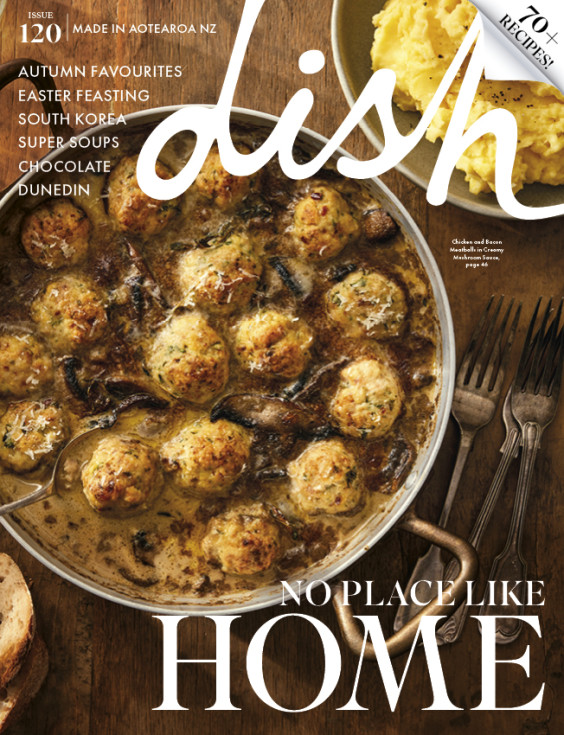Clean farming: a meaty topic
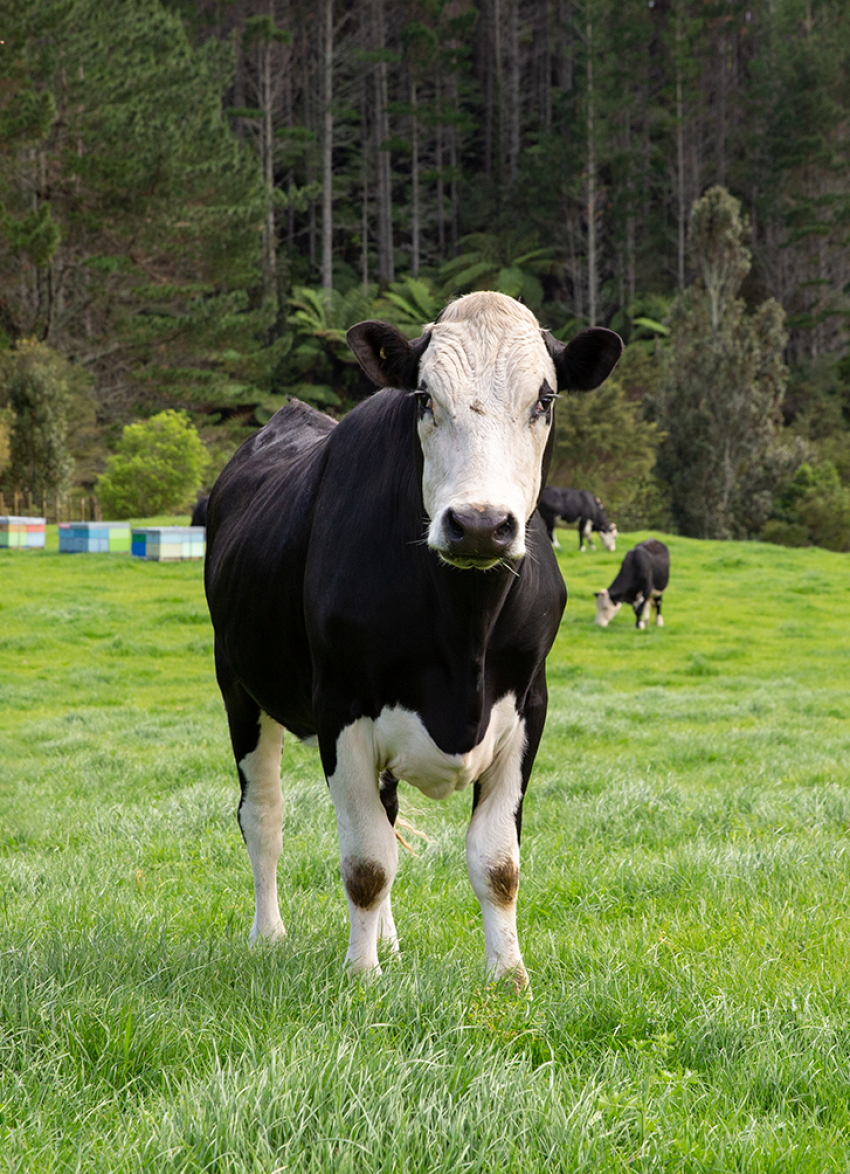
Sustainable farming starts on the farm itself. So we talked to Rick Burke, a farmer for Greenlea Butcher Shop who has been farming sheep, bull beef, finishing steers and dairy grazers in Pukekauri for 38 years and asked about what sustainable farming looks like at the grass roots, and why clean rivers and great steak go hand in hand.
This article was created in partnership with Greenlea Butcher Shop
In 2014 Pukekauri Farms was the Supreme Winner of the Bay of Plenty Ballance Environmental Farm Awards, recognising the farms sustainable farming practises while still maintaining profitability. So Rick Burke, who, along with his wife Jan Loney, has been farming that land for 38 years, has hands on experience in making sustainability work for him.
Pukekauri Farms is just south of Katikati up against the Kaimai Ranges. It's 300 hectares of mixed contour land ranging from flat ground, to rolling hills to very steep with a number of fresh water streams flowing through the farm from the Kaimais.
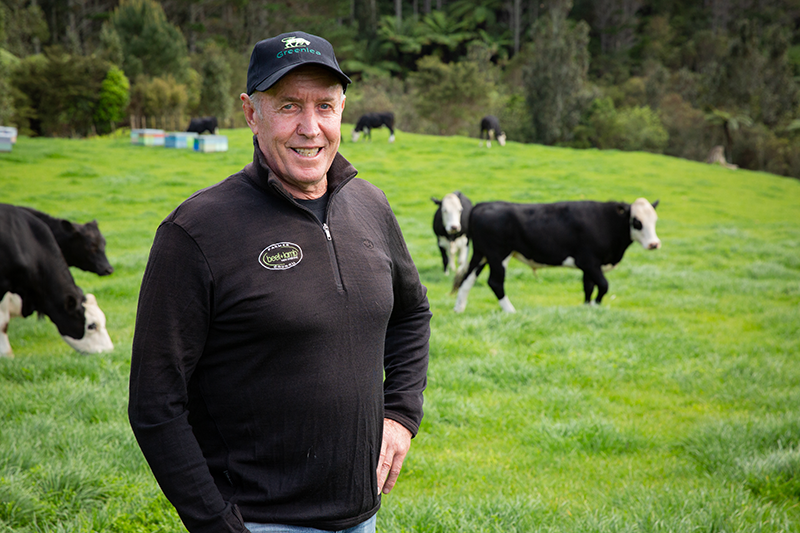
Rick Burke on Pukekauri farm.
"We are in the great outdoors working with nature and the elements," says Rick. "We love to showcase what we do on farm and how we manage our landscapes to those who visit the farm."
And it's little wonder he's enthusiastic, wildlife is crisscrossed through his workplace. Most of the streams and wetlands on the farm are protected and planted in native species, creating corridors of biodiversity through the farm, so sustainability is built into the job - even if Rick wasn't already enthusiastic about it. His father in law, Derry Seddon, got him focused on sustainability in the early 1980s.
"He made me aware of the impacts we had on our landscapes through development and our farming activities. Through his influence and learning from others I have learned to focus on understanding the capability of our soils, contour and fertility. In order to farm sustainably I needed to match the right farming activity to the land class, where farming fitted the land."
That idea drew him to sustainable farming and won his farm the Supreme Award at the Bay of Plenty Ballance Environmental Farm Awards: farming needs to suit the land.
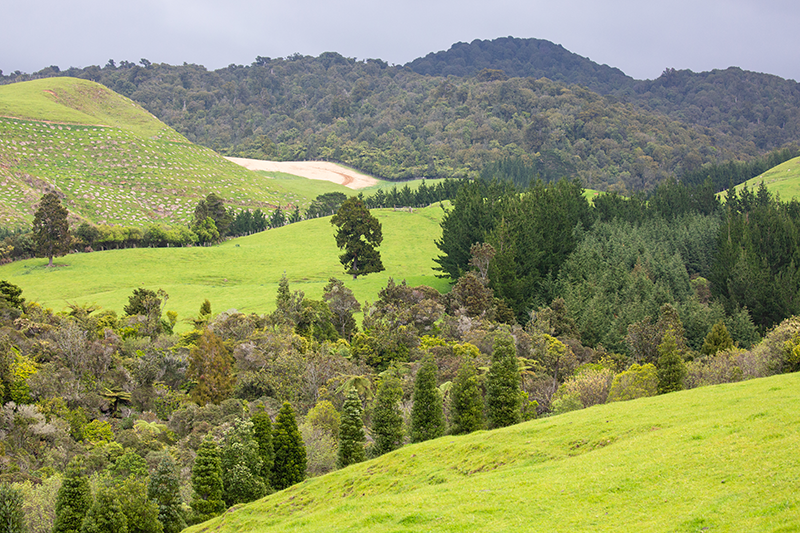
On a daily basis, that means Rick has to ensure his farming activities maintain or enhance the soil health of the farm. That means not over-grazing, which might make the grass unable to pull nutrients from the soil effectively...or damaging a paddock by "pugging", which is what happens when wet soil gets trampled into mud by heavy livestock. It causes the soil to get soft, wet and unable to grow grass. It can take years to recover from, and that's a problem for the farm because essentially, Rick, and other livestock farmers, are grass farmers.
"So in order to grow large volumes of high quality feed we need to have healthy soils."
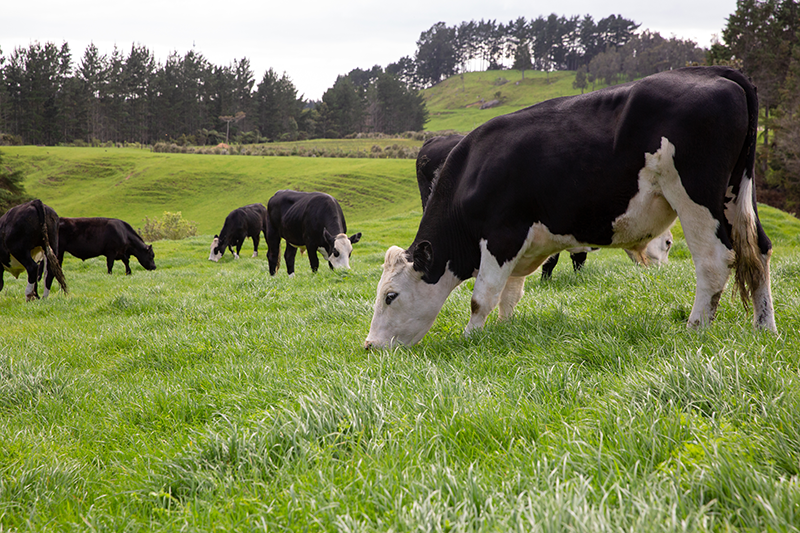
Because, of course, without that high quality feed, you can't get high quality sheep or cows - and making sure that soil maintenance can happen also requires longer term thinking when choosing the very land that his livestock live on. Rick uses a scientific Land Use Capability methodology to take into account factors like the soil type and how steep the land is to choose what to put there: sheep on steep land that heavier animals like cattle would erode, causing sediment to flow into streams and contaminate them. He farms his cattle on flat, but well draining soil, and moves them regularly to make sure the grass stays healthy and the cattle in turn get enough nutrients.
In valleys too prone to pugging, Rick has planted trees. There's plenty of manuka on his farm, which encourages the native birds to come to visit. In turn, the kingfish, fantails, kereru and grey warblers bring seeds with them, and native bush starts to thrive. The swamps that were there when he began are now native wetlands. Now, valleys that Rick says never should have been grazed that are full of wildlife.
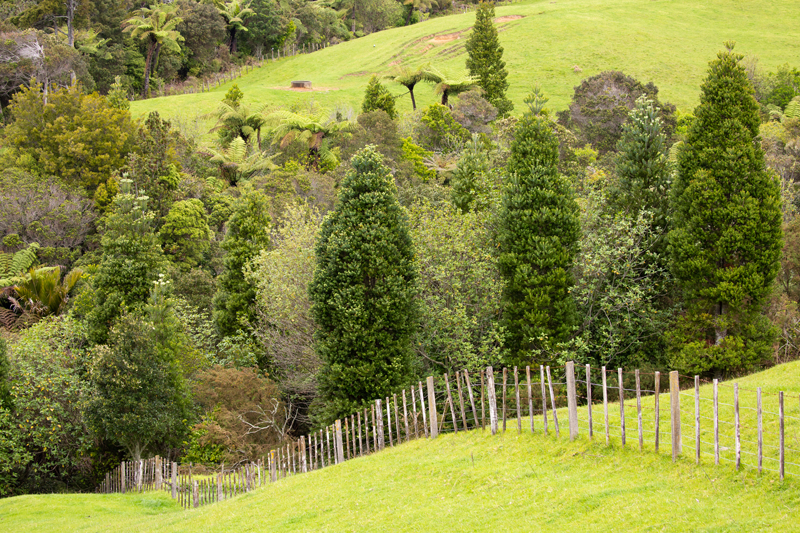
He knows his work on the farm is having an impact in the wider area because test results from the local catchment community consistently show that the streams on his farm are increasing or maintining in water quality and biodiversity.
"Results to date show we are constantly improving fresh water and biodiversity health with most of our streams score carding a nine out of ten invertebrate and fish health," Rick reports.
In fact, he's part of Project Parore, focused on reducing the impact of industry on the environment in the Katikati area, particularly, restoring the depleted parore fish population. The hope is that by reducing the amount of sediment being introduced to waterways, the fish population numbers will rise. Sure enough, the project is working: the fish population is returning to a normal level.
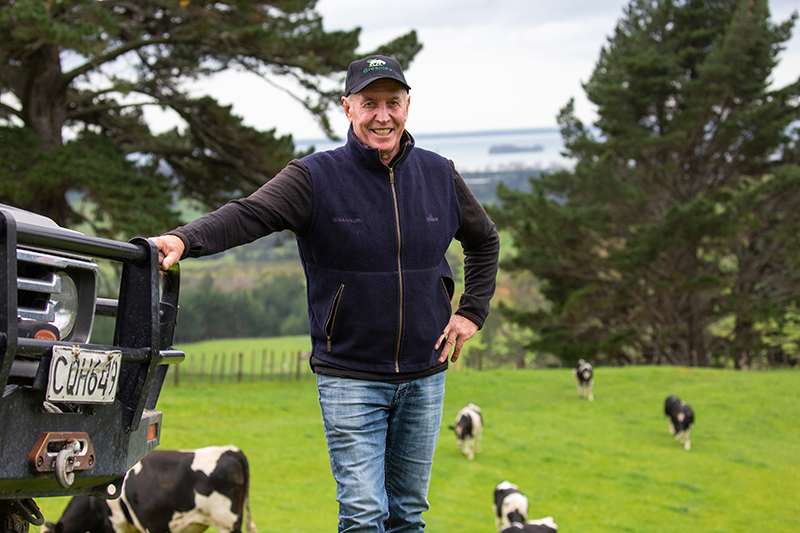
That's just one 'downstream' effect of the move to sustainable farming, but it is an indication that what he is doing is increaing biodiversity and having a positive effect. Rick's idea of a great year is one with normal rainfall and growing conditions so the animals grow to their genetic potential ("which means we are profitable") and the ecosystems on the farm are healthy and vibrant.
For the future of his farm, he'd like to turn the land into a "mozaic of land use where farming fits the land," but he adds that looking after the soil, fresh water, and biodiversity on the farm has always been a big focus. It's only now that we can know the numbers around carbon emissions, and, he's delighted to say, "Pukekauri Farms is carbon neutral."
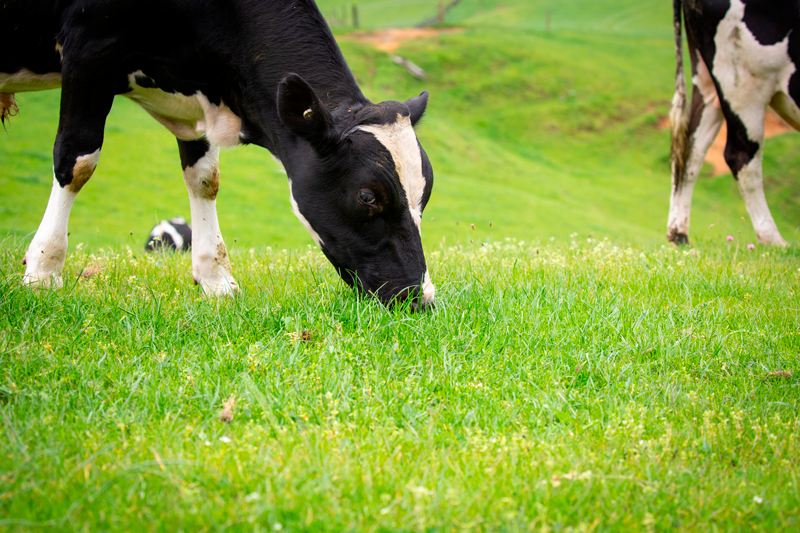
So he is well on his way to meeting his sustainability goals, but at the end of the day, when the steak meets the grill, does a sustainable ethos comes through in the taste of the meat? Rick believes so.
"If you have healthy naturally rich soils that haven't been ruined with the overuse of nutrient or chemicals, the natural flavours coming from the soils will flow through to the succulent taste of our beef and lamb."
With soil so lovingly looked after, fresh water streams so carfully protected and native biodiversity so celebrated, the proof is in the sirloin, and the natural conclusion here is for you to go to the Greenlea Butcher Shop to taste the difference for yourself.

Rick Burke and his wife Jan Loney
Greenlea Butchers
Find out more at greenleabutcher.co.nz or shop at greenleabutcher.co.nz/all
latest issue:
Issue #120
As the days become shorter, and the nights cooler, the latest issue is perfectly timed to deliver delicious autumn dishes. From recipes using fresh seasonal produce such as feijoas and apples, to spectacular soothing soups and super-quick after-work meals in our Food Fast section, we’ve got you covered. With Easter on the horizon, we feature recipes that will see you through breakfast, lunch and dinner over a leisurely weekend holiday, and whip up chocolatey baking treats sure to please. We round up delicious dinners for two and showcase a hot new Korean cookbook before heading south to Dunedin to check out all that’s new in food and dining.The latest issue of dish is on sale NOW at all good bookstores and supermarkets – don’t miss it!

